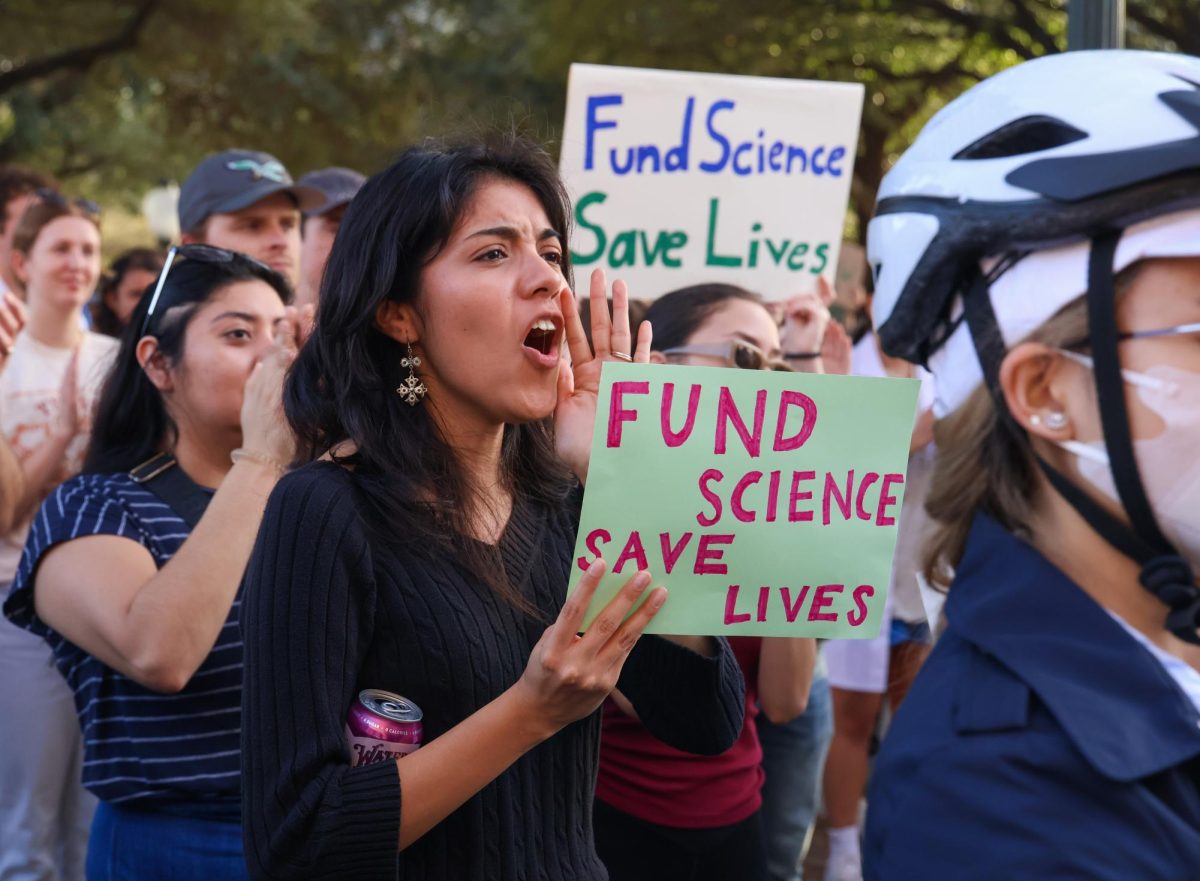This week’s biting cold and frozen precipitation are quite unusual for Central Texas, said meteorologists.
The temperatures in the low 20s made Thursday the coldest Feb. 3 on record, according to My Fox Austin. A week that started with sunny weather quickly turned — and stayed — freezing. The sub-32 degree temperatures will continue until at least noon today, according to the National Weather Service. The service also forecasted a 70-percent chance of snow, likely about one inch.
Troy Kimmel, senior Geology lecturer and local KEYE weatherman, said the current weather was unusual for the Austin region.
“Most of the time you get cold air freezing on the ground, but not freezing all the way up to get to snow,” Kimmel said. “Snow itself is not that unusual. We normally see snowflakes every few years, just not on the ground.”
Kimmel said the matter of university closure depended on the early morning weather.
“Every situation is different,” he said. “This is not a decision made by the University in a vacuum, it’s a decision made by the whole community.”
Kimmel said he doubted that Travis, Harrison and Williamson counties would get above an inch or two of snow, expecting the areas to the east to get the heavier snow, possibly 2-3 inches.
Steve Smart, meteorologist for the National Weather Service, agreed.
“We advise residents not to travel if it’s not necessary. The snow event is going to occur in the overnight hours when it’s dark and we’re going to lose some visibility,” Smart said. “If you have to travel, slow down, and allow extra time to reach your destination.”
At press time, the University had not confirmed whether campus would close today. Thursday evening, University officials sent an e-mail that said they would announce a decision by 6 a.m. Friday.
Frozen streets and Wednesday’s rolling power blackouts have forced closures at campuses across the state, including the University of Texas at Arlington, Texas State University and the University of Texas Pan-American. Because there was no snow previously in Central Texas, and because UT operates its own power plant and did not experience the electricity problems, UT has remained open all week.
In a press conference yesterday, Trip Dogget, President and CEO of the Energy Reliability Council of Texas, said that the state experienced outages in more than 50 generating power plants.
“We appreciate the sacrifices of those with outages and appreciate the conservation efforts of those without power,” Doggett said. “It’s unfortunate that these events unfolded quickly, often that presents a challenge in communication.”
Doggett said the power outages were caused by a combination of items, including frozen ice, frozen valves, and frozen control equipment such as monitors. He said ERCOT would be preparing a list of the specific resources that were outed, the generation types, and the specific problems that caused the outage.




















